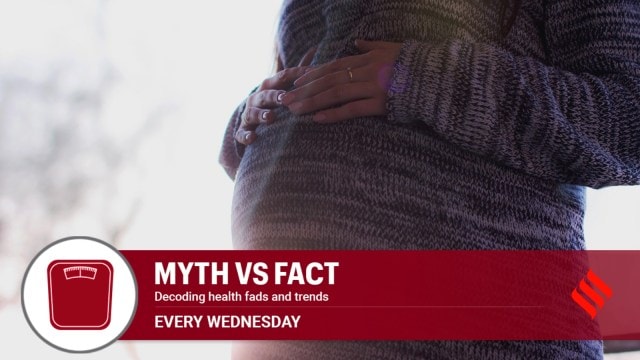Folic acid supplements during pregnancy: Do you really need them? Here’s busting an online myth
If you’re planning to conceive or are already pregnant, go by your doctor’s advisory
 Pregnancy is a time when nutritional needs increase and expectant mothers are often advised to take supplements to support their baby’s development. (Photo: Pixabay)
Pregnancy is a time when nutritional needs increase and expectant mothers are often advised to take supplements to support their baby’s development. (Photo: Pixabay)Pregnancy is a time when nutritional needs increase and expectant mothers are often advised to take supplements to support their baby’s development. One of the most commonly recommended supplements is folic acid. However, there is often confusion about whether folic acid is truly necessary and how it differs from naturally occurring folate.
Myth: Folic Acid and Folate Are the Same
Fact: Although often used interchangeably, both are different. Folate is the naturally occurring form of vitamin B9, found in leafy greens, beans, lentils and citrus fruits. Folic acid, on the other hand, is the synthetic form of vitamin B9, used in fortified foods and supplements. While both help in DNA synthesis and red blood cell production, folic acid is more stable and better absorbed by the body when taken as a supplement.
Myth: A Healthy Diet Provides Enough Folate, So Supplements Are Unnecessary
Fact: While it is possible to get folate from food sources, many women do not consume enough through diet alone. Moreover, natural folate is less stable and can be lost during cooking. Since folic acid is more bioavailable than food-derived folate, supplementation ensures that pregnant women get adequate amounts to support the baby’s growth and development.
Myth: Folic Acid Is Only Important for Early Pregnancy
Fact: While folic acid is critical when the baby’s neural tube (it is needed for brain and spinal cord) is forming in the first few weeks, it remains important throughout pregnancy. It supports the rapid growth of the placenta and fetus, prevents anemia in the mother and aids in the production of DNA and new cells. Doctors often recommend taking folic acid supplements even before conception and continuing them throughout pregnancy.
Every woman must take it regardless of family history. Daily supplementation of at least 400-800 micrograms (mcg) is recommended for all women of childbearing age.
Myth: Excess Folic Acid Harms the Baby
Fact: Folic acid is a water-soluble vitamin, meaning the body excretes excess amounts through urine. While extremely high doses (above 1,000 mcg) should only be taken under medical supervision, the recommended daily intake of 400-800 mcg is safe and beneficial. In cases where women have a history of NTDs (neural tube defects) or specific genetic conditions, higher doses may be prescribed by a doctor.
Myth: Folic Acid Supplements Are Not Necessary if I Take a Prenatal Vitamin
Fact: Most prenatal vitamins include the necessary dose of folic acid but not all are created equal. Some women, especially those with certain genetic mutations, may require a different form of folate for better absorption.
If you’re planning to conceive or are already pregnant, talk to your doctor about the right dosage and form of folate or folic acid for you.
(Dr Suri is senior consultant, Obstetrics and Gynaecology, Indraprastha Apollo Hospitals, New Delhi)



- 01
- 02
- 03
- 04
- 05




























